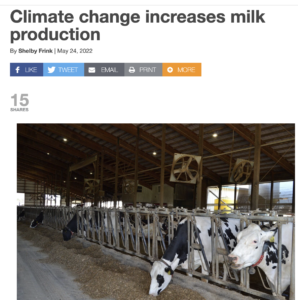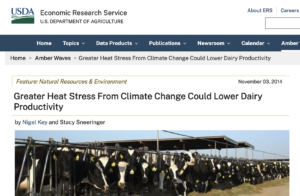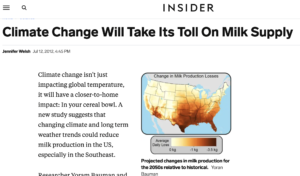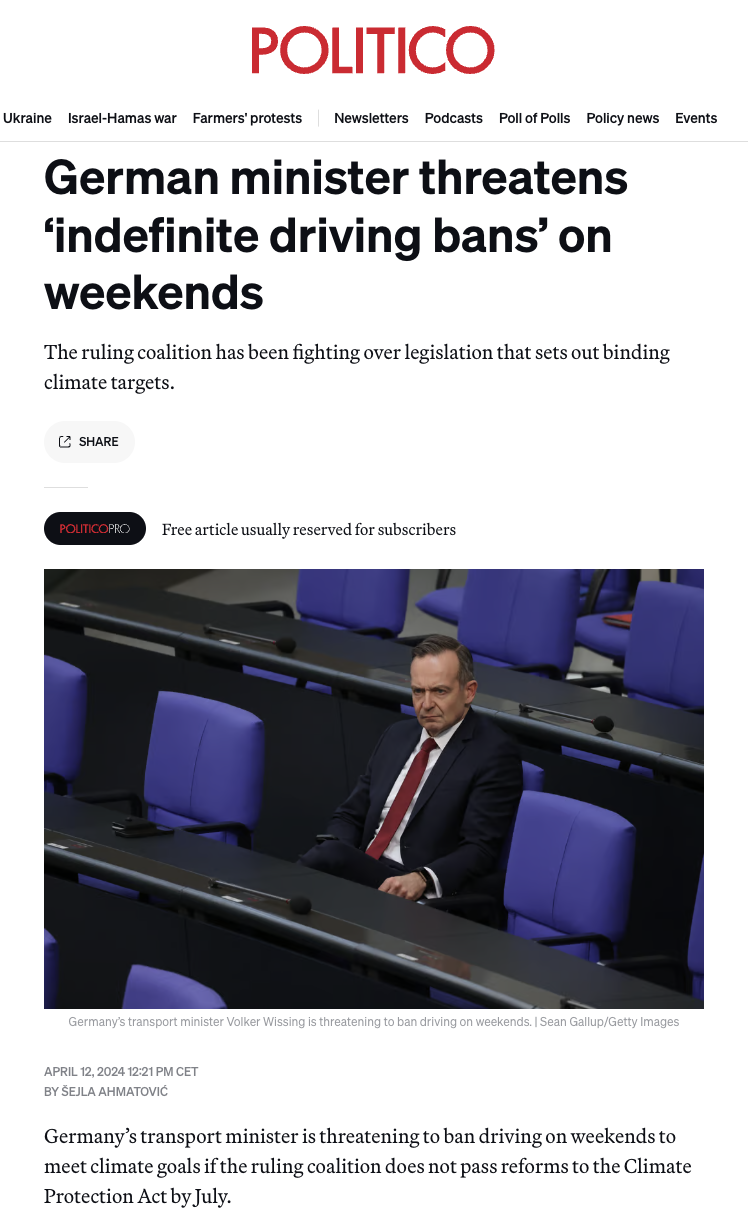http://greatlakesecho.org/2022/05/24/climate-change-increases-milk-production/
By Shelby Frink
Researchers found that increasing temperatures from climate change may slightly increase milk production, despite the heat stress on cows. Dairy cows produce less milk when they get too hot, said Rigoberto Lopez, the corresponding author of the study and a professor of Agricultural and Resource Economics at the University of Connecticut. However, hot temperatures stimulate the growth of plants that cows eat to produce milk. The loss of milk production through heat stress is offset by the increase in feed production, according to the study published in March in the journal Agricultural and Resource Economics Review. This is because the more cows eat, the more milk they can produce, Lopez said. It’s the first U.S. study to analyze that tradeoff, he said. Another study in Spain came to the same conclusion. Researchers focused on extreme temperatures, Lopez said. “We wanted to see the effects of climate change on cows.” Another benefit of a warming climate is that feed production increased over a 10-year span because the growing season lengthened over time, said Chris Laughton, a co-author of the study and an agricultural economist at Farm Credit East, a Connecticut financial services network. Increased feed production also has economic implications. Feed is the bulk of the cost of dairy production, Lopez said. Whatever happens to feed will affect the profitability of farms. Feed is a dairy farm’s biggest expense, especially between the increase in fertilizer costs and the cost of the land to grow it, said Eric Westendorp, a dairy farmer at MOO-ville Creamery in Nashville, Michigan.
#
Flashback 2014: Greater Heat Stress From Climate Change Could Lower Dairy Productivity

#
2012: Business Insider: Climate Change Will Take Its Toll On Milk Supply
Climate change isn’t just impacting global temperature, it will have a closer-to-home impact: In your cereal bowl. A new study suggests that changing climate and long term weather trends could reduce milk production in the US, especially in the Southeast.
Researcher Yoram Bauman and his team from the University of Washington, analyzed high-resolution climate data in relationship to county-level dairy industry data. They fast forwarded these relationships through 2080, as the effects of climate change will continue to increase.





